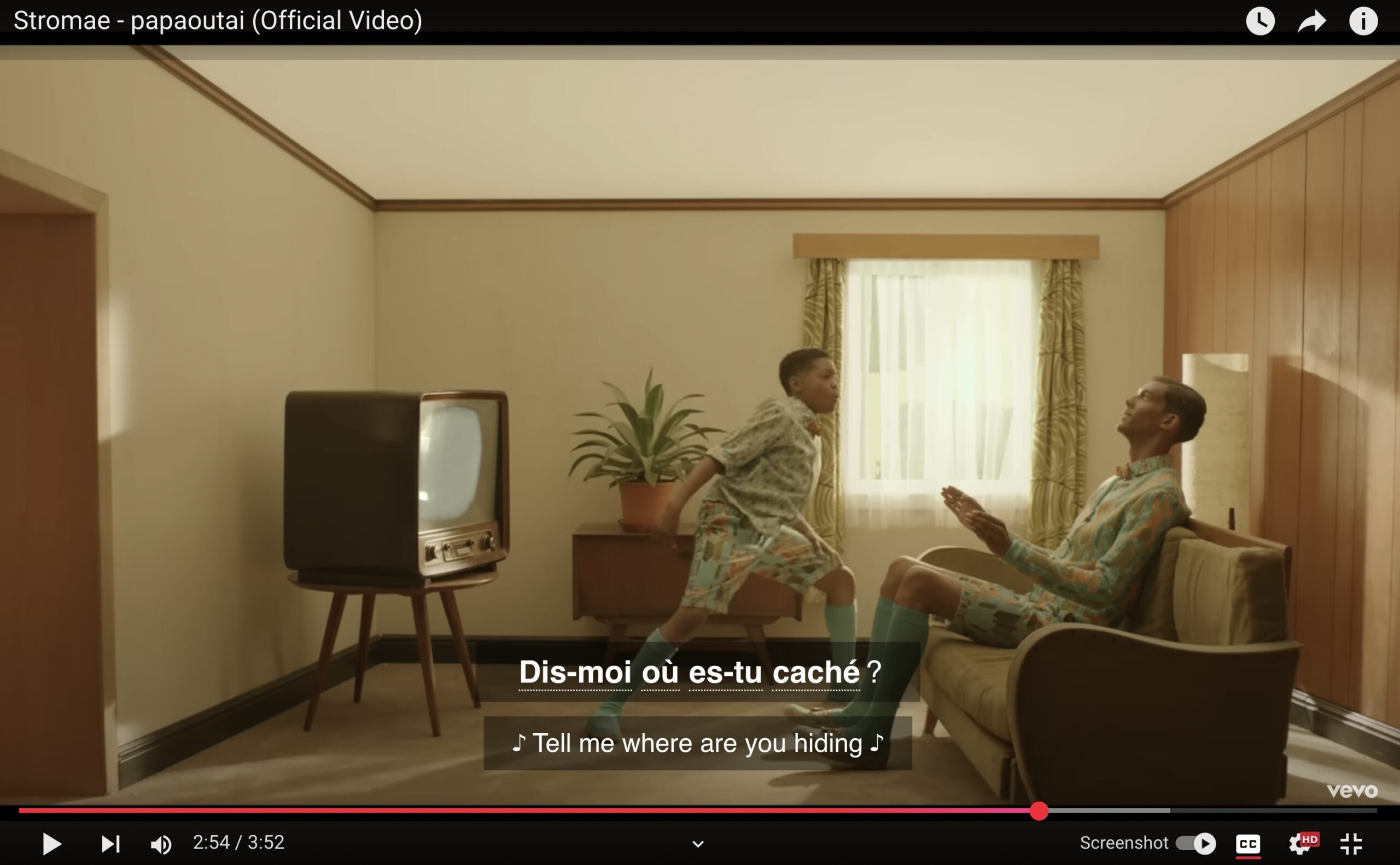40+ French Internet Slang Terms

The French tend to shorten many words down to the bare minimum when chatting online or texting, which is why this guide will be so helpful in making sense of it all.
Here are some common internet slang terms that you would encounter in a casual online French conversation.
Download: This blog post is available as a convenient and portable PDF that you can take anywhere. Click here to get a copy. (Download)
French Internet Slang Basics
- Abbreviations: DSL = désolé (sorry), PDP = pas de problème (no problem).
- Apostrophes are almost never used: j’ai = jai.
- Accents such as cedillas (ç) and circumflexes (â) are ignored.
- Using letters that are pronounced the same but look completely different: o = au.
- Silent letters are cut off completely: hier = ier, parle = parl.
Popular French Internet Slang Words
1. C
This may just look like a simple, innocent letter, but in French internet slang it takes on many forms. “C” can mean ça, c’est or ce.
Example: C la vi = C’est la vie (That’s life), Cv = ça va (How’s it going?).
2. Cc
When this comes at the start of a message it means Coucou !, a very informal way to say “hey!” to family and friends.
3. Slt
Slt is the online abbreviation for Salut, meaning “hi” or “hello” in English. You can say Slt when starting up an online conversation: Slt comment ça va ? (Hi, how are you?)
4. Bjr
If it’s morning, then you can greet people with bjr or bonjour. There’s also bsr for bonsoir (good evening) and b1sr, or bonne soirée (good night) for the full round of greetings!
5. É
This can mean either et (and) or est (is, from the verb être, “to be”).
6. Ki
In French internet slang, the “qu” is often replaced with “k” to shorten the word. The above example is qui (who), and this is seen with other commonly used words, like ke = que (what), parcek = parceque (because), kand = quand (when).
7. G
If you know how “G” is pronounced in the French alphabet, then this should come relatively easily. It is used to replace j’ai (I have), while the letter “j” is used to replace je (I).
8. Twa
Another common practice is to replace the sound “oi” or “uoi” with “wa.” Twa = toi (you), Kwa = quoi (what).
For example: Cc, cv twa ? = coucou, ça va toi ? (Hey you, how’s it going?)
9. Ac
Nope, not short for that brilliant invention we know as air conditioning! Ac means avec (with), shortened to just the first and last letter. This is also seen with similar words like dc = donc (so/therefore) and vla = voilà.
10. Biz
Bisous, the French version of giving kisses or love at the end of a message, is often seen as biz. You would never see bisous followed by “xoxo” or “xx,” as they both mean the same thing. It is also often used in conversation at the end of a phone call, “Biz, ciao.”
11. STP
This is a perfect example of an abbreviation in French online chat: s’il te plaît (please). Another example is TLM = tout le monde (everyone).
12. Mdr
As a French translation of the English “lol” and used in exactly the same way, mdr or mort de rire means to be dying of laughter. You know you’re chatting like a true native if you add a casual mdrrr to an online conversation.
13. Ptdr
If mdr is like “lol,” then there’s also a French version of “rofl” (rolling on the floor laughing). That’s where ptdr (pété de rire) comes in. You can think of it as mdr intensified, so save it for those truly exceptional memes and insanely hilarious videos.
14. Jpp
A similar word would be jpp, short for J’en peux plus. This means “I can’t take it anymore” because it’s just too funny.
15. A+
This has no connection with school grades at all, although it can be a welcome sight online! A+ signifies À plus tard (See you later), and it’s a casual, breezy way to sign off a conversation.
16. A tt
Another classic word that follows the “short and sweet” approach to French internet slang is a tt = à toute à l’heure ! (see you soon!). This is often heard in conversation as A toute!
17. DSL
DSL is an abbreviation for désolé(e), which translates to “Sorry.” Here’s how you could use it: DSL, je n’ai pas pu répondre tout de suite. (Sorry, I couldn’t reply right away.)
18. X
In the context of internet slang, “X” signifies the verb croire (to believe). For example, j x ke would mean “je crois que” (I believe that…). You can see here how the word “cross” in English relates to the French.
19. Chou
Chou is slang for “cute,” very different from its original counterpart mignon(ne), which would not often be seen when chatting online. Make sure not to confuse this one with the French chou-fleur (cauliflower)! So if someone says to you “Tu es choouu !”, it is not a bizarre insult relating to the aforementioned vegetable, but rather a sign of affection.
20. Auj
Short for aujourd’hui (today), auj is quite recognizable from the first three letters and is one of the few abbreviations that you could likely figure out right away on your own. Bon anniv = bon anniversaire (happy birthday) is another abbreviation with a very clear meaning.
21. Tjrs
As you can guess, tjrs is short for toujours (always). For example, you might send this as a quick text to someone: “Je t’aime tjrs” (I love you always).
22. Pq / Pk
Pq and pk both stand for pourquoi (why). You can even respond to this with another shortened word: pcq = parce que (because…).
23. Mrc
Give someone a quick thank you online with mrc (or merci)! Some French speakers might use thx, which is a carryover from English (thank you).
24. Qlc
Here’s another common French word with an internet version: qlq = quelque (some, a few). A related word is qqch = quelque chose (something), which pops up pretty often in French too.
25. VDM
FML (F*** My Life) might be an English expression, but it’s universally understood—and so French also has VDM = Vie de merde.
When you’re intensely frustrated and want to rant and rave at the world, it’s so satisfying to type. Example: J’ai raté mon bus, VDM ! (I missed my bus, FML!).
26. JTM
Here’s a cutesy abbreviation for saying you love someone: JTM = Je t’aime. You can think of it as similar to saying ILY in English.
27. LSTB
LSTB stands for laisse tomber, which means “let go” or “forget about it.” It’s used when someone wants to drop a subject or move on to a different topic, as in Ce n’est pas important, lstb ! (It’s not important, forget about it!)
28. Pg
Another chill French internet slang is pg = pas grave. This translates to “No big deal,” or “it’s okay,” and it’s meant to downplay a situation or give reassurance.
29. Tkt
Similar to pg, there’s also tkt = t’inquiète (don’t worry / it’s all right).
For example: J’ai perdu mes clés, mais TKT, je les retrouverai. (I lost my keys, but don’t worry, I’ll find them.)
30. Oklm
What if you literally want to tell someone to chill in French? The word for that is oklm = on se calme. Here’s a classic line: OKLM, tout ira bien (Chill, everything will be fine.)
31. OSEF
This French internet slang word expresses indifference. OSEF is the abbreviation for on s‘en fout (who cares / we don’t care).
32. Srx
Just as we say “Seriously?” in English, the French have their own version too for conveying disbelief: srx = sérieux. Check out this example: “Il a mangé toute la pizza, srx ?” (He ate the whole pizza, seriously?).
33. Jsp
This is how you say IDK in French! JSP stands for Je ne sais pas (I don’t know). Just like its English counterpart, it’s found all over the internet. You might say: JSP ce qui se passe. (I don’t know what’s happening).
34. Askip
This word has nothing to do with skipping. Instead, it’s short for àse k‘il paraît—or, with proper French spelling, à ce qu’il paraît. You can translate it as “It seems that…” or “What I’ve heard is…”
This phrase might pop up when people are talking about gossip or rumors. It’s used in spoken French as well!
35. Tmtc
If you’re sharing something relatable or you have an inside joke with friends, you can use Tmtc = Toi-même tu sais (You know what I’m talking about).
36. Cad
Cad is the snappy online version of c’est à dire (that is to say, in other words). This phrase is meant to clarify or explain something that has just been mentioned.
37. Mtn
If you want something immediately, then the word for that mtn, which means maintenant (now). French speakers might type this to give a sense of urgency or provide real-time updates. For example: Je vais me coucher mtn (I’m going to bed now).
38. Tps
On the French internet, temps (time) is sometimes shortened to tps. Say that you’re gaming with someone—you might type out: Ça fait combien de tps que tu joues à ce jeu ? (How long have you been playing this game?)
39. Mdp
We don’t really have a shortcut for password in English, but in French, they have mdp = mot de passe (password). Now you know what it means when you see this in forums!
40. Bg
Here’s a complimentary slang: bg is short for beau gosse (handsome guy) or belle gosse (beautiful girl). When an online celebrity released a new photo of his, you might spot a fan commenting, Regarde sa photo, quel bg ! (Look at his picture, what a handsome guy!).
41. D’acc
Just as we might say OK in English, French speakers might say d’acc instead of d’accord (okay / agreed). If you send a text saying, On se voit à 20h ? (Let’s meet at 8 PM?), then they might reply with D’acc.
42. B1
Bien (well / good) is such a common word in French, so naturally it has a shortened online version: B1. You can use this when you’re agreeing with someone or feeling contented.
For example, your friend might ask you: T’as réussi l’examen ? (Did you pass the exam?) You can answer naturally with: Oui, B1 ! (Yes, I did well!)
All these online slang words might take some getting used to at first, but if you keep hanging around on the French internet, they’ll become second nature. A lot of these are based on slang words used in spoken French, such as the ones in this video:
Since you can’t really pick up French slang from textbooks, your best option for learning them is to immerse in French media. For instance, you could try using FluentU, a language learning program that also teaches you colloquial language. Its lessons are based on video clips from French TV shows, movies, songs and more, with interactive captions and transcripts.
You can also listen to French rap and other music to learn slang that you probably won’t learn in any typical language course.
Of course, you can test out French slang you’ve just learned by chatting with native speakers online! After all, with this guide to French internet slang, you’re ready to shoot off a snappy response to that French pal of yours without a second thought.
Download: This blog post is available as a convenient and portable PDF that you can take anywhere. Click here to get a copy. (Download)
And One More Thing...
If you're like me and enjoy learning French through movies and other media, you should check out FluentU. With FluentU, you can turn any subtitled content on YouTube or Netflix into an engaging language lesson.
I also love that FluentU has a huge library of videos picked specifically for French learners. No more searching for good content—it's all in one place!

One of my favorite features is the interactive captions. You can tap on any word to see an image, definition, and examples, which makes it so much easier to understand and remember.
And if you're worried about forgetting new words, FluentU has you covered. You'll complete fun exercises to reinforce vocabulary and be reminded when it’s time to review, so you actually retain what you’ve learned.
You can use FluentU on your computer or tablet, or download the app from the App Store or Google Play. Click here to take advantage of our current sale! (Expires at the end of this month.)










